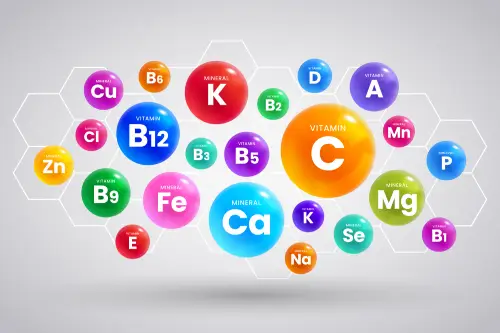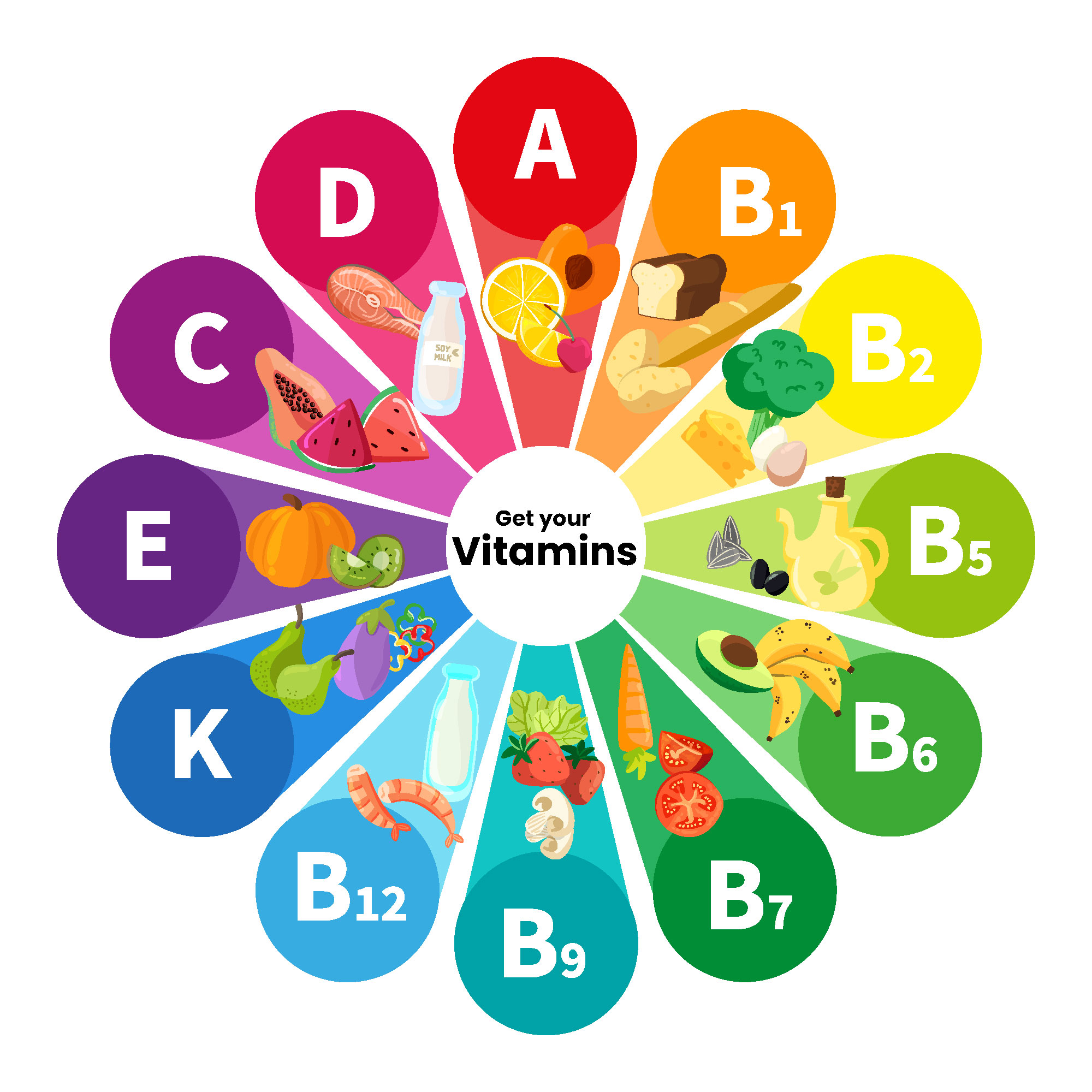This article will talk about the vitamins that are essential for our bodies.
Nutrients are organic and inorganic substances of high importance to the body. In most cases, they need to be obtained from external sources, i.e. they are not naturally produced by the human body.
But after all, what is the main function of vitamins and minerals for the body? Why do they need to be taken regularly? What is the best source of these nutrients?
That’s what we’re going to talk about in this post, so read on and find out more!
Content
ToggleWhat is the main function of vitamins and minerals?
In general, we can say that the main function of vitamins and minerals is to help maintain the body’s biological functions, participating in metabolism with the synthesis of enzymes and other molecules that serve many purposes in the body.
Some nutrients can participate in the construction of tissues, others can stimulate the production of compounds important for the body’s well-being, help strengthen immunity, strengthen bones and muscles, preserve and stimulate the nervous system, take care of cardiovascular health, among many other functions.
Some nutrients can participate in the construction of tissues, others can stimulate the production of compounds that are important for the body’s well-being, help strengthen immunity, strengthen bones and muscles, preserve and stimulate the nervous system, take care of cardiovascular health, among many other functions.
Deficiencies in certain vitamins and minerals, which occur due to impaired absorption of nutrients or a lack of a regular, balanced diet, can increase the risk of serious health problems and even fatalities in extreme cases.
Knowing the real importance of nutrients for our health, it is interesting to know the main function of vitamins and minerals considered essential for the human body. Before that, let’s define what each of these compounds are.
What are vitamins?
Vitamins are organic substances that are essential for the proper functioning of the body, which is unable to synthesize these nutrients on its own, requiring them to be obtained from external sources, such as food or supplements.
They are considered organic compounds because they are carbon-based. They act directly in the activation and regulation of metabolism, contributing to the formation of enzymes, hormones and important molecules for biological functions.
Types of vitamins
There are two main categories for this compound: water-soluble vitamins and fat-soluble vitamins.
The former are water-soluble substances, i.e. they need water to be dissolved and used by the body. They are usually more unstable and less resistant to factors such as humidity, heat and light, which can reduce their concentration in foods exposed to these conditions.
In the case of fat-soluble vitamins, which need to be associated with fats in order to break down and synthesize their molecules, they tend to be more resistant and stable, maintaining their concentration more easily.
| Vitamin | Type | Function |
| Vitamin A | Fat-soluble | Antioxidant, anti-inflammatory, strengthens immunity, encourages collagen production, stimulates cell renewal and cares for eyesight |
| Vitamin D | Fat-soluble | Regulates calcium and phosphate, acts in the formation and strengthening of bones, takes care of blood pressure, controls inflammation and fights infections |
Vitamin E | Fat-soluble | Stimulates carnitine synthesis, generates energy in the muscles, also participates in the formation and regeneration of tissues in the body |
| Vitamin K | Fat-soluble | Acts in the synthesis and absorption of proteins, especially those needed for bone formation and blood clotting |
| Vitamin C | Water-soluble | Stimulates collagen production, participates in carnitine synthesis, improves tissue healing, acts as an antioxidant and anti-inflammatory, encourages neurotransmitter synthesis and contributes to disease prevention |
| Thiamine (B1) | Water-soluble | Improves the body’s ability to break down and synthesize carbohydrates and amino acids |
| Niacin (B3) | Water-soluble | Stimulates energy production in cells and participates in the synthesis of hormones and fatty acids |
| Folic acid (B9) | Water-soluble | Essential for fetal development, participates in the formation of our DNA and stimulates cell production and the structuring of various tissues and components of the human body |



